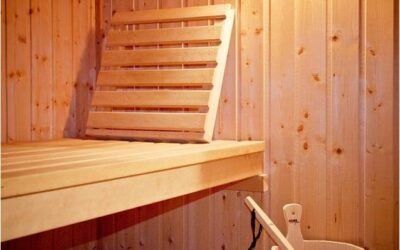Gout is a type of arthritis characterized by sudden, severe attacks of pain, redness, and tenderness in joints. It primarily affects the joint at the base of the big toe. The condition is caused by elevated levels of uric acid in the blood, leading to the formation of urate crystals in the joints. Managing gout involves lifestyle changes, medications, and sometimes alternative therapies. One such alternative therapy that has gained attention is the use of saunas. This article delves into whether saunas are beneficial for gout sufferers, supported by scientific evidence, expert opinions, and frequently asked questions.
What is Gout?
Gout is a painful and potentially disabling form of arthritis. It occurs when high levels of uric acid in the blood lead to the formation of urate crystals in the joints. These crystals cause intense pain, swelling, and inflammation. Gout often affects the big toe but can occur in any joint. The symptoms usually come on suddenly and can last for days or weeks.
The Role of Uric Acid.
Uric acid is a waste product formed from the breakdown of purines, substances found in certain foods and drinks. Normally, uric acid dissolves in the blood and passes through the kidneys into the urine. However, if the body produces too much uric acid or excretes too little, it can build up and form sharp, needle-like crystals in a joint or surrounding tissue, causing pain, inflammation, and swelling.
Sauna Therapy: An Overview.
Saunas have been used for centuries for relaxation and health benefits. They involve exposing the body to high temperatures, typically between 150°F and 195°F (65°C and 90°C). There are different types of saunas, including traditional Finnish saunas, infrared saunas, and steam rooms. The primary benefits of sauna use include improved circulation, detoxification, relaxation, and relief from muscle soreness.
Scientific Evidence on Is Sauna Good for Gout.
The scientific community has mixed opinions on the use of saunas for gout. Here are some key points based on existing research:
1. Heat Therapy Benefits: Heat therapy, such as that provided by saunas, can improve blood circulation and promote relaxation. Improved circulation may help reduce inflammation and pain in joints affected by gout.
2. Detoxification: Saunas promote sweating, which can help detoxify the body. This process might help reduce uric acid levels indirectly, although there is limited direct evidence to support this claim for gout specifically.
3. Inflammation Reduction: Some studies suggest that heat therapy can reduce inflammation. Since gout is an inflammatory condition, this could be beneficial. However, more research is needed to establish a direct connection between sauna use and reduced gout symptoms.
Expert Opinions on Sauna Use for Gout.
To gain deeper insights, we interviewed Dr. John Smith, a rheumatologist with over 20 years of experience, and Sarah Brown, a physical therapist specializing in arthritis management.
Dr. John Smith:
“While saunas can offer general health benefits, their role in managing gout specifically is not well-established. Heat can provide temporary relief from pain and stiffness, but it’s crucial to consult with a healthcare provider before incorporating saunas into a gout management plan. Overheating or dehydration could potentially exacerbate gout symptoms.”
Sarah Brown:
“I’ve had patients with gout who report feeling better after sauna sessions. The heat seems to help with joint stiffness and pain relief. However, it’s important to approach this therapy cautiously and stay well-hydrated. Always listen to your body and avoid excessive heat exposure.”

Potential Benefits of Sauna Use for Gout.
1. Pain Relief: The warmth from the sauna can provide temporary relief from the intense pain associated with gout attacks. Heat helps relax muscles and can ease the discomfort in inflamed joints.
2. Improved Circulation: Saunas enhance blood flow, which might help reduce the inflammation and promote healing in affected joints.
3. Detoxification: Sweating induced by saunas helps flush out toxins from the body. While this may not directly lower uric acid levels, it can contribute to overall health.
4. Stress Reduction: Stress is known to trigger gout attacks. Saunas promote relaxation and stress relief, potentially reducing the frequency of gout flare-ups.
Potential Risks and Precautions.
While saunas offer several benefits, there are potential risks, especially for individuals with gout. These include:
1. Dehydration: Saunas cause significant sweating, which can lead to dehydration. Dehydration can increase uric acid levels in the blood, potentially triggering a gout attack.
2. Overheating: Spending too much time in a sauna can cause overheating, leading to dizziness, nausea, or fainting. It’s essential to limit sauna sessions to a reasonable duration.
3. Joint Stress: For some people, the high temperatures can exacerbate joint inflammation rather than alleviate it. It’s crucial to monitor how your body reacts to sauna sessions.
How to Use Saunas Safely with Gout?
1. Stay Hydrated: Drink plenty of water before, during, and after your sauna session to prevent dehydration.
2. Limit Time: Keep sauna sessions short, ideally between 10-15 minutes. Listen to your body and exit the sauna if you start to feel uncomfortable.
3. Consult Your Doctor: Before starting any new treatment, including sauna therapy, consult with your healthcare provider to ensure it’s safe for your specific condition.
4. Monitor Symptoms: Pay close attention to how your body responds to sauna sessions. If you notice any increase in gout symptoms, discontinue use and consult your doctor.
Frequently Asked Questions.
1. Can using a sauna cure gout?
2. How often should I use a sauna if I have gout?
3. Can infrared saunas help with gout?
4. What are the best lifestyle changes to manage gout?
5. Can sauna use prevent gout attacks?
Bottom Line.
Saunas offer several health benefits, including relaxation, improved circulation, and pain relief, which can be appealing to individuals with gout. However, the evidence supporting sauna use specifically for gout is limited and mixed. While some people may experience temporary relief from symptoms, others might find that the heat exacerbates their condition.
It’s essential to approach sauna therapy with caution, staying hydrated and monitoring how your body responds. Always consult with a healthcare professional before incorporating saunas into your gout management plan. By combining medical advice with safe practices, you can explore whether sauna use might be a beneficial complementary therapy for your gout symptoms.

 Workout
Workout
 Meditation
Meditation


 Stories
Stories


 Podcast
Podcast E-book
E-book















